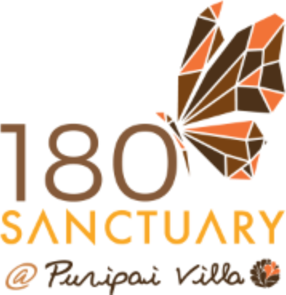

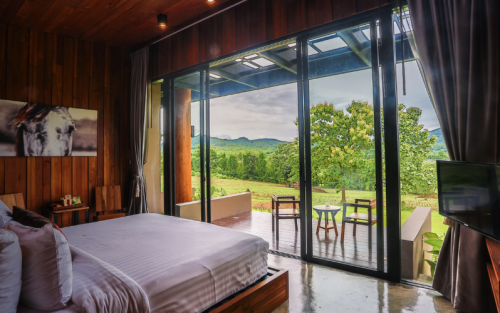




180 Sanctuary At PuriPai Villa
Verified Center
This provider's information has been quality-checked by Recovery.com's Research Team for accuracy and completeness, including center verification through appropriate third-party organizations.
Treatment Focus
This center treats substance use disorders and mental health conditions. You'll receive individualized care catered to your unique situation and diagnosis, learn practical skills for recovery, and make new connections in a restorative environment.
Primary Level of Care
Offering intensive care with 24/7 monitoring, residential treatment is typically 30 days and can cover multiple levels of care. Length can range from 14 to 90 days typically.
Treatment Focus
This center treats substance use disorders and mental health conditions. You'll receive individualized care catered to your unique situation and diagnosis, learn practical skills for recovery, and make new connections in a restorative environment.
Primary Level of Care
Offering intensive care with 24/7 monitoring, residential treatment is typically 30 days and can cover multiple levels of care. Length can range from 14 to 90 days typically.
Private Pay
You pay directly for treatment out of pocket. This approach can offer enhanced privacy and flexibility, without involving insurance. Exact costs vary based on program and length of stay. Contact the center for specific details.
180 Sanctuary At PuriPai Villa
180 Sanctuary At PuriPai Villa
About 180 Sanctuary At PuriPai Villa
The 180 Sanctuary is an integrative, trauma-informed behavioral health rehab and wellness center, boasting an international team of psychologists, counsellors, and holistic therapists. They specialize in treating trauma-related mental health issues, ranging from drug or alcohol addiction to Post Traumatic Stress Disorder (PTSD). Their treatment approach combines the best of Western clinical care and Eastern wellness practices, creating a singular approach that’s unique. All clients will be assessed by a clinical psychologist upon admission to create an individualized recovery plan.
Expert Clinical Treatment
All treatment programs are led by clinical psychologists. 180 Sanctuary provides counseling, coaching, fitness, nutrition, and psychological assessment by experts in their fields. These are complimented by their range of relaxation-focused and trauma-resolving therapeutic treatments. Expert treatment begins with the skills and qualifications of 180 Sanctuary’s founders, whose expertise and dedication to crafting an unmatched recovery experience makes each client’s stay feel catered, special, and irreplaceable.
A Trauma-Informed Treatment Approach
180 Sanctuary takes a trauma-focused approach to recovery, using evidence-based therapies and Eastern wellness practices to identify and work through the trauma that may have led to addiction. Eye movement desensitization (EMDR) and breathing sessions help clients process and move past trauma in a way that’s safe, meaningful, and comfortable. 180 Sanctuary uses specially-crafted models and approaches to addiction and mental health, using the skills, experience, and qualifications of their staff to deliver exceptional service.
Recover In Peaceful Seclusion
180 Sanctuary’s mountainous location provides seclusion and an ample amount of fun activities. When clients aren’t in treatment sessions or relaxing in luxury villas, 180 Sanctuary provides adventure opportunities like hikes, water activities, exploration, and boxing sessions. Sightseeing and off-site outings allow clients to enjoy the special environment of Thailand and create new, sober memories. 180 Sanctuary provides chef-prepared meals and upgrade options for accommodations, with certain amenities only available in private villas, like a private pool.
The 180 Programme

Center Overview
Treatment Focus
This center treats substance use disorders and mental health conditions. You'll receive individualized care catered to your unique situation and diagnosis, learn practical skills for recovery, and make new connections in a restorative environment.
Pricing and Program Length
Estimated Center Costs
The cost listed here (Starting from $8,000 - $24,000), is an estimate of program cost. Center price can vary based on program and length of stay. Contact the center for more information. Recovery.com strives for price transparency so you can make an informed decision.
Luxury rehab centers offer a unique blend of luxurious amenities and high-quality treatment. From private suites to gourmet dining, personal trainers to spa treatments, these facilities provide a high level of comfort and discretion.

Meet Your Care Team

Dr. Nongnuch Sattagornpornprom
Registered Clinical Psychiatrist
Board Certified in Psychiatry and Family Medicine

Mr. Tony
CEO
MPsy Clinical Psychology (Australia), Msc Counselling (USA)

Mr. Ivan
Clinical Director, Registered Clinical Psychologist
Doctor of Psychology in Clinical Psychology (USA), Registered Clinical Psychologist (Singapore)

Mr. Chris Sekar
Programme Director, Registered Clinical Supervisor
MA Counselling (UK), Graduate-Diploma Counselling Psychology (UK)

Ms. Anya
Clinical Team
Graduate-Diploma in Counselling (UK)
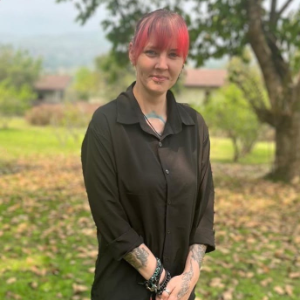
Ms. Wendy
Clinical Lead, Psychologist, DBT Practitioner (C-DBT), IFS Practitioner, Shame-Informed Treatment Specialist (CSTS), Clinical Trauma Specialist (CCTP)
MSc in Clinical Psychology

Ms. Kainaz
Clinical Lead, Psychologist, DBT Practitioner (C-DBT), IFS Practitioner, Shame-Informed Treatment Specialist (CSTS), Clinical Trauma Specialist (CCTP)
MSc in Clinical Psychology

Ms. Tawan
Clinical Psychologist, EMDR Specialist, CBT Practitioner (C-CBT), IFS Practitioner, Clinical Trauma Specialist (CCTP), Nutritionist
BSc (Hons) Psychology
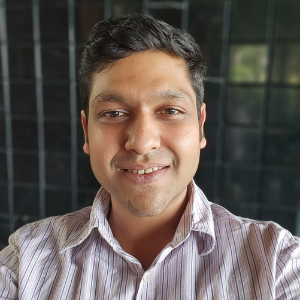
Mr. Saurav
Psychologist, CBT Specialist, Mindfulness Specialist, 500 Hours Yoga Teacher
MA Counselling Psychology

Mr. Mitch
Psychologist, Clinical Trauma Specialist (CCTP), EMDR Specialist, Sex Therapy Informed Professional (CSTIP)
BSc (Hons) Psychology

Mr. Bryan
Neuropsychologist
BSc (Hons) Psychology
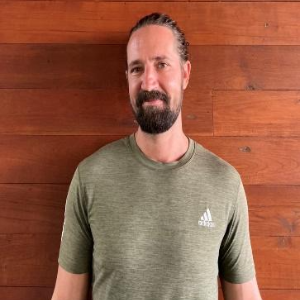
Mr. Sean
Somatic Specialist, Breathwork Specialist, TRE Specialist




Levels of Care






Your Care Options
Specializations
Anxiety
Anxiety is a common mental health condition that can include excessive worry, panic attacks, physical tension, and increased blood pressure.
Depression
Symptoms of depression may include fatigue, a sense of numbness, and loss of interest in activities. This condition can range from mild to severe.
Drug Addiction
Drug addiction is the excessive and repetitive use of substances, despite harmful consequences to a person's life, health, and relationships.
Post Traumatic Stress Disorder
PTSD is a long-term mental health issue caused by a disturbing event or events. Symptoms include anxiety, dissociation, flashbacks, and intrusive thoughts.
Trauma
Some traumatic events are so disturbing that they cause long-term mental health problems. Those ongoing issues can also be referred to as "trauma."
Who We Treat
Young Adults
Emerging adults ages 18-25 receive treatment catered to the unique challenges of early adulthood, like college, risky behaviors, and vocational struggles.
Midlife Adults
For adults ages 40+, treatment shifts to focus on the unique challenges, blocks, and risk factors of their age group, and unites peers in a similar community.
Approaches
Evidence-Based
A combination of scientifically rooted therapies and treatments make up evidence-based care, defined by their measured and proven results.
Family Involvement
Providers involve family in the treatment of their loved one through family therapy, visits, or both–because addiction is a family disease.
Holistic
A non-medicinal, wellness-focused approach that aims to align the mind, body, and spirit for deep and lasting healing.
Individual Treatment
Individual care meets the needs of each patient, using personalized treatment to provide them the most relevant care and greatest chance of success.
Non 12 Step
Non-12-Step philosophies veer from the spiritual focus of the 12-Steps and instead treat the disease of addiction with holistic or secular modalities.
Wellness
Wellness philosophies focus on the physical, mental, and spiritual wellness of each patient, helping them restore purpose with natural remedies.
Therapies
1-on-1 Counseling
Patient and therapist meet 1-on-1 to work through difficult emotions and behavioral challenges in a personal, private setting.
Meditation & Mindfulness
A practiced state of mind that brings patients to the present. It allows them to become fully aware of themselves, their feelings, and the present moment.
Trauma-Specific Therapy
This form of talk therapy addresses any childhood trauma at the root of a patient's current diagnosis.
Mindfulness Therapy
This ancient practice can be mental, emotional, and even spiritual. In meditation, you focus your attention on the present moment without judgement.
Adventure Therapy
This experiential approach uses the physical and emotional challenges of outdoor activities as tools for personal growth.
Art Therapy
Visual art invites patients to examine the emotions within their work, focusing on the process of creativity and its gentle therapeutic power.
Couples Counseling
Partners work to improve their communication patterns, using advice from their therapist to better their relationship and make healthy changes.
Conditions We Treat
Pornography Addiction
A person with a porn addiction is emotionally dependent on pornography to the point that it interferes with their daily life and relationships.
Grief and Loss
Grief is a natural reaction to loss, but severe grief can interfere with your ability to function. You can get treatment for this condition.
Personality Disorders
Personality disorders destabilize the way a person thinks, feels, and behaves. If untreated, they can undermine relationships and lead to severe distress.
ADHD, ADD
ADHD is a common mental health condition caused by dopamine imbalance. Common symptoms include inattention, hyperactivitiy, and impulsivity.
Anger
Although anger itself isn't a disorder, it can get out of hand. If this feeling interferes with your relationships and daily functioning, treatment can help.
Anxiety
Anxiety is a common mental health condition that can include excessive worry, panic attacks, physical tension, and increased blood pressure.
Bipolar
This mental health condition is characterized by extreme mood swings between depression, mania, and remission.
Depression
Symptoms of depression may include fatigue, a sense of numbness, and loss of interest in activities. This condition can range from mild to severe.
Eating Disorders
An eating disorder is a long-term pattern of unhealthy behavior relating to food. Most people with eating disorders have a distorted self-image.
Substances We Treat
Alcohol
Using alcohol as a coping mechanism, or drinking excessively throughout the week, signals an alcohol use disorder.
Benzodiazepines
Benzodiazepines are prescribed to treat anxiety and sleep issues. They are highly habit forming, and their abuse can cause mood changes and poor judgement.
Chronic Relapse
Consistent relapse occurs repeatedly, after partial recovery from addiction. This condition requires long-term treatment.
Co-Occurring Disorders
A person with multiple mental health diagnoses, such as addiction and depression, has co-occurring disorders also called dual diagnosis.
Cocaine
Cocaine is a stimulant with euphoric effects. Agitation, muscle ticks, psychosis, and heart issues are common symptoms of cocaine abuse.
Drug Addiction
Drug addiction is the excessive and repetitive use of substances, despite harmful consequences to a person's life, health, and relationships.
Ecstasy
Ecstasy is a stimulant that causes intense euphoria and heightened awareness. Abuse of this drug can trigger depression, insomnia, and memory problems.
Heroin
Heroin is a highly addictive and illegal opioid. It can cause insomnia, collapsed veins, heart issues, and additional mental health issues.
Languages
Aftercare
Care Designed for Your Needs
Personal Amenities
Amenities
Special Considerations
Family Member Stays
Treatment providers welcome family members to stay on-site to better the experience and success of patients and their families as a whole.
Flexible technology policies
Centers with flexible technology policies allow professionals to stay in touch with work and give patients a greater sense of connection and normalcy.
Healthy Meals are provided
Great food meets great treatment, with providers serving healthy meals to restore nutrition, wellbeing, and health.
Activities
Yoga
Yoga is both a physical and spiritual practice. It includes a flow of movement, breathing techniques, and meditation.
Off-Site Activities
Yoga
Yoga is both a physical and spiritual practice. It includes a flow of movement, breathing techniques, and meditation.
Off-Site Amenities
What people are saying
Treatment
4.6
Accommodations
4.6
Food & Nutrition
4.2
Value
4.4
Pros
- Beautiful Location (25)
- Access to Nature (22)
- Addressed Trauma (19)
- Fun Activities (19)
Cons
- Not Treated With Respect (2)
- Hidden Costs (2)
- Shallow Post-Treatment Planning (2)
JS
Treatment in 2022 • (14 days) • Reviewed 11/14/22
Former Client
J Chambers
Treatment in 2022 • (14 days) • Reviewed 06/25/22
Former Client
•UK
Anonymous
Treatment in 2022 • (60 days) • Reviewed 05/02/22
Former Client
SCSC
Treatment in 2022 • (170 days) • Reviewed 11/05/22
Former Client
•Medical
•United Kingdom
Rick
Treatment in 2022 • (30 days) • Reviewed 11/04/22
Former Client
•Actor
•Thailand






